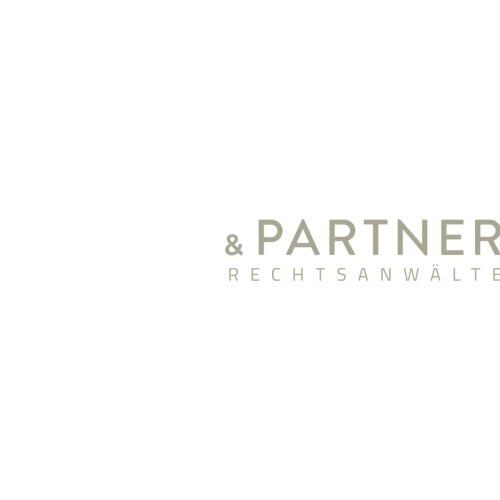Best Sanctions & Export Controls Lawyers in Graz
Share your needs with us, get contacted by law firms.
Free. Takes 2 min.
List of the best lawyers in Graz, Austria
About Sanctions & Export Controls Law in Graz, Austria
Sanctions and export controls law in Graz, Austria refers to the set of legal rules that regulate, restrict, or prohibit the transfer of goods, technologies, services, and funds to certain countries, organizations, or individuals. These laws aim to ensure national security, protect foreign policy interests, and comply with international obligations such as United Nations and European Union sanctions. The City of Graz, as part of Austria, is governed by Austrian national laws, as well as regulations that originate from the European Union concerning sanctions and export controls. Both businesses and individuals in Graz must comply with these legal frameworks to avoid severe penalties.
Why You May Need a Lawyer
You may need legal advice or the assistance of a lawyer in Graz, Austria regarding sanctions and export controls if you find yourself in any of the following situations:
- Your company wishes to export or re-export goods, services, or technology from Austria to another country.
- You are unsure if a transaction or partnership would violate existing EU, Austrian, or UN sanctions regimes.
- Your business is under investigation for suspected breaches of export controls or sanctions.
- You need to apply for export licenses or exemptions and require guidance on regulatory processes.
- You received a request from authorities for information or documents related to sanctions compliance.
- You want to set up compliance programs and staff training for ongoing transactions with international clients or suppliers.
- You need help responding to the detention or seizure of goods by customs officials.
Local Laws Overview
In Graz, as elsewhere in Austria, sanctions and export control laws are primarily governed by national legislation and directly applicable European Union regulations. Some key legal aspects include:
- The Austrian Foreign Trade Act (Außenwirtschaftsgesetz) outlines requirements for obtaining export licenses for certain sensitive goods and technologies, including dual-use items.
- EU sanctions implemented via regulations are immediately applicable in Austria, including targeted restrictions on dealings with specific countries (for example, Russia, Iran, North Korea) or entities.
- Certain products, such as military goods, weapons, and dual-use technologies, are subject to stricter controls and may require specific permits.
- Failure to comply with applicable export control regulations or sanctions can result in significant fines, imprisonment, and loss of business privileges.
- Austrian customs authorities in Graz have the power to detain goods and request documentation to verify compliance with export laws and sanctions.
- Ongoing changes to international situations can quickly update and expand sanctions lists, making up-to-date legal advice critical.
Frequently Asked Questions
What are export controls?
Export controls are legal measures imposed by authorities to monitor and restrict the export of certain goods, technologies, and services, especially those that can be used for military or dual-use purposes.
What are sanctions in the context of Austria?
Sanctions are restrictive measures such as trade bans, asset freezes, or travel restrictions imposed by Austria, the European Union, or the United Nations in response to geopolitical events or foreign policy concerns.
Who needs to comply with export controls and sanctions in Graz?
All businesses and individuals in Graz, including exporters, brokers, and service providers, must comply with relevant Austrian and EU laws regarding sanctions and export controls.
What are dual-use goods?
Dual-use goods are items, technology, or software designed for civilian use but which can also be used for military applications or weapons development.
How do I find out if my products are subject to export controls?
You can consult the EU Dual-Use Regulation or the Austrian Foreign Trade Act's control lists. It is advisable to seek legal advice or contact Austrian customs authorities for clarifications.
What happens if I breach sanctions or export control regulations?
Violations may result in criminal prosecution, substantial fines, seizure of goods, reputational damage, or imprisonment depending on the severity and intent.
How can I apply for an export license in Graz?
Applications are generally submitted to the Austrian Ministry of Economy or relevant authorities. An experienced lawyer can guide you through the process and help prepare documentation.
Do changes in international affairs impact sanctions in Austria?
Yes, the list of sanctioned countries, entities, and goods can change rapidly based on international developments, making it crucial to stay updated through official channels.
Are there exceptions or exemptions to export controls?
Exceptions may be granted under certain conditions, for humanitarian reasons or specific professional uses, but always require official authorization.
Can a lawyer help me if my goods are detained at the border?
Yes, lawyers can assist by communicating with customs, preparing the necessary paperwork, and representing your interests during investigations or administrative proceedings.
Additional Resources
If you are seeking more information or legal advice regarding sanctions and export controls in Graz, Austria, you may find the following resources helpful:
- Austrian Federal Ministry of Labour and Economy (Bundesministerium für Arbeit und Wirtschaft)
- Austrian Financial Market Authority (Finanzmarktaufsicht - FMA)
- European Commission - Directorate General for Trade
- Chamber of Commerce Styria (Wirtschaftskammer Steiermark) Export Service Center
- Austrian customs offices based in Graz
- Legal aid societies and local law firms specializing in international trade and compliance
Next Steps
If you need assistance with sanctions or export controls law in Graz, start by documenting the details of your transaction or concern and gathering all related correspondence and agreements. Consider reaching out to a qualified lawyer with experience in sanctions, export controls, and international trade. Most law firms offer confidential consultations and can guide you through compliance checks, licensing, or dispute resolution. Stay up to date with changes by monitoring official government and EU websites, or subscribe to legal update newsletters. Early legal guidance is the best way to ensure your business or personal activities remain fully compliant and to avoid unnecessary risks.
Lawzana helps you find the best lawyers and law firms in Graz through a curated and pre-screened list of qualified legal professionals. Our platform offers rankings and detailed profiles of attorneys and law firms, allowing you to compare based on practice areas, including Sanctions & Export Controls, experience, and client feedback.
Each profile includes a description of the firm's areas of practice, client reviews, team members and partners, year of establishment, spoken languages, office locations, contact information, social media presence, and any published articles or resources. Most firms on our platform speak English and are experienced in both local and international legal matters.
Get a quote from top-rated law firms in Graz, Austria — quickly, securely, and without unnecessary hassle.
Disclaimer:
The information provided on this page is for general informational purposes only and does not constitute legal advice. While we strive to ensure the accuracy and relevance of the content, legal information may change over time, and interpretations of the law can vary. You should always consult with a qualified legal professional for advice specific to your situation.
We disclaim all liability for actions taken or not taken based on the content of this page. If you believe any information is incorrect or outdated, please contact us, and we will review and update it where appropriate.
















